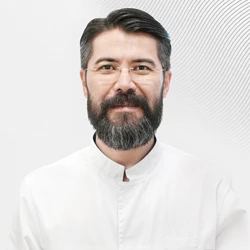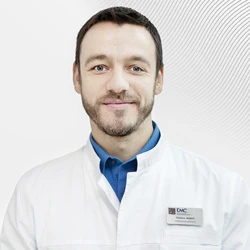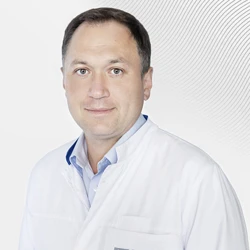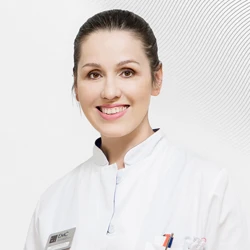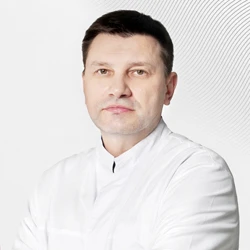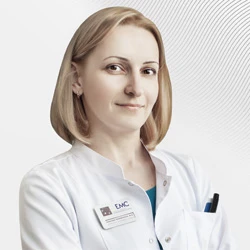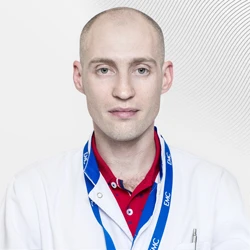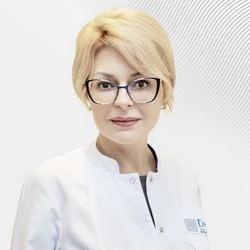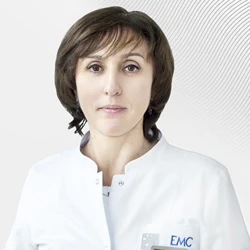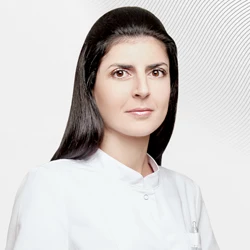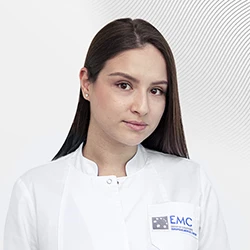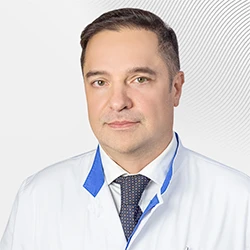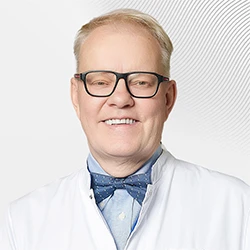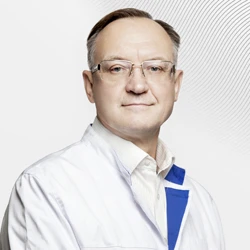EMC is Russia's first private clinic whose doctors operate on the latest generation da Vinci Si HD robotic system.
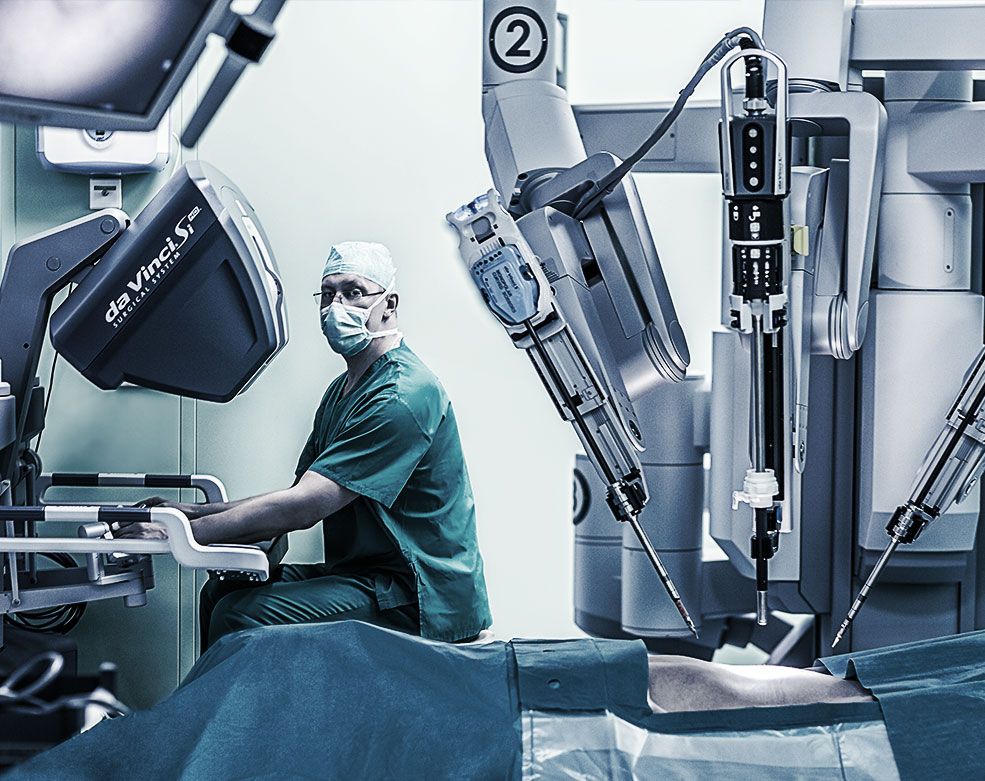
Using the da Vinci system is a breakthrough in surgical treatment, primarily of oncological diseases. This technology of minimally invasive interventions is by far the most advanced in the field of endoscopic surgery. Thanks to micro-tools that replace the surgeon's hands, radical removal of the tumor through small punctures is possible within one to two hours. With the help of the da Vinci robot, surgical intervention is performed with minimal blood loss and tissue injury, which significantly reduces the postoperative and recovery periods.
Seven degrees of freedom of movement of the surgical instrument make it possible to perform manipulations as accurately as possible without damaging nerve branches and vessels.During the operation, the doctor receives a 10x magnification 3D image of the surgical field. The surgeon controls the da Vinci robot using special manipulators that transmit the slightest movements of his fingers. Since the robot has three "hands", and all of them have 360–degree mobility, using the da Vinci system, it is possible to perform complex operations in areas inaccessible to the surgeon's hands - in fact, through punctures on the skin. Previously, such interventions were most often open.
The use of robotic technology allows for the most complex surgical interventions.:
-
On the thyroid gland (treatment of tumors and nodules of the thyroid gland: thyroidectomy - removal of the thyroid gland, hemithyroidectomy – removal of one lobe of the thyroid gland). Advantages of robotic thyroid surgery: operations are performed through axillary access, with minimal side effects and pain, without scars on the neck, while preserving the vocal nerves.
-
On the organs of the head and neck (removal of benign and malignant tumors of the oral cavity, nasopharynx, oropharynx, larynx, vocal cords, trachea, salivary glands, lymph dissection of the neck); EMC ENT surgeons are the only ones in Russia using transoral surgery technology (TORS) using the Da Vinci robotic installation for operations in the field of oropharynx and laryngopharynx.
-
In urology for the treatment of adenoma and prostate cancer, as well as for the correction of urinary incontinence. Types of operations: prostatectomy, nephrectomy, kidney resection, cystectomy, pyeloplasty; robotic prostaectomy allows for prostate removal while maintaining erectile function. The advantages of a complete or partial nephrectomy using a da Vinci robot: precise removal of the tumor, low level of surgical complications, short time of thermal ischemia (the shorter the better for kidney function), less blood loss.
-
In gynecology;(treatment of precancerous conditions and uterine cancer (removal of the uterus, appendages and lymph nodes), precancerous conditions and cervical cancer (extended Wertheim surgery with removal of lymph nodes); removal of ovarian tumors; removal of ovaries from the area of subsequent radiation for malignant tumors of the pelvic organs (ovarian transposition), etc.
-
In bariatric surgery (longitudinal resection and gastric bypass).
-
In abdominal surgery.
-
In plastic surgery.
For the first time in Russia, a number of robot-assisted operations were performed at the EMC:
-
2012 – the first gynecological and oncogynecological operations in private practice in Russia on the latest generation da Vinci Si HD robot.;
-
2013 was Russia's first robot-assisted cystoprostectomy with lymphodissection (removal of the bladder and prostate using the da Vinci Si HD robotic surgical system and removal of a chain of lymph nodes) in a patient with a diagnosed bladder tumor.
-
2014 was the first total thyroidectomy in Russia using the da Vinci robot.
-
2014 - Russia's first robotic hemithyroidectomy (removal of nodular formation of the right lobe of the thyroid gland using the da Vinci system).
-
2015 is a unique one–stage radical robotic prostatectomy and phalloprosthetics.
-
2017 was Russia's first robot-assisted ureteral plastic surgery for a two-year-old child. In 2018, another patient under the age of 2 underwent a similar operation.
The operations are performed by leading specialists in the field of robotic surgery, including:
-
Jean-Rene Millier is an otorhinolaryngological surgeon, oncosurgeon (France);
-
Anvar Yuldashev is a coloproctologist, oncologist surgeon, PhD;
-
Kirill Pshenisnovis a plastic surgeon, the first Russian surgeon to complete the full training program of the Foundation for Plastic Surgery (PSEF), USA, MD, Professor;
-
Yulia Maksimova - obstetrician-gynecologist, surgeon, PhD, Head of the Fibroids Treatment Center;
-
Arevik Charkhifalakyan is an obstetrician-gynecologist, oncologist, and surgeon.





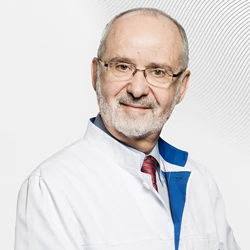
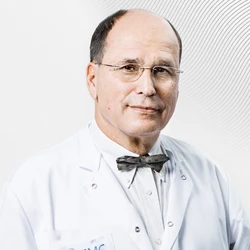
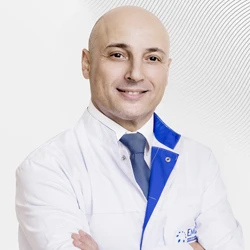
.webp)
